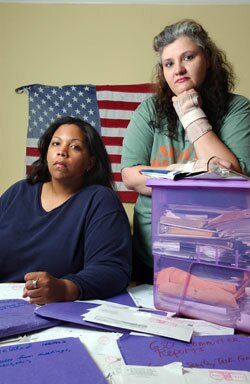Vigilance Urged After Supreme Court Censorship Decision
Advocates for strong collegiate press freedom urged student journalists to remain vigilant in their quest to thoroughly and responsibly report the news after the U.S. Supreme Court announced Feb. 21 it would not hear arguments in a case challenging censorship at public universities. For student journalists in Illinois, Indiana and Wisconsin, the court’s refusal means the possibility of having a more difficult time expressing themselves in school-sponsored publications. For students and free-press advocates across the country, concerns linger also: Will college administrators see the justices’ decision as additional reason to exert control over the student press? Just days ago, at an HBCU Newspaper Conference in Greensboro, N.C., student editors from historically black colleges discussed First Amendment breaches affecting their newspapers. “Whether or not they try to curb these freedoms and rights remains to be seen,” said Tom Rolnicki, executive director of the Associated Collegiate Press, the largest and oldest national membership organization for college student media. He was speaking of school administrators. The case began more than five years ago when three students at Governors State University in Illinois sued the school after administrators demanded prior review of the Innovator, the student newspaper. Patricia Carter, then the dean, told the newspaper’s printer in October 2000 to hold future issues of the paper pending administration approval of its contents. The Innovator had printed news stories and editorials critical of the school administration. The Innovator then stopped publishing. Student journalists Margaret Hosty, Jeni Porche and Steven Barba sued the university in January 2001. In April 2003, the students gained a small victory when a three-judge panel of a lower court denied the university’s attempt to have the case dismissed, and threw its support behind college press freedom. Illinois Attorney General Lisa Madigan then filed a petition on behalf of Dean Carter for the case to be reheard in the federal appeals court. That petition was granted and last June, the 7th Circuit U.S. Court of Appeals ruled in favor of the university. Its decision, in effect, reduced the First Amendment rights of college journalists to those of high school students. It said a ruling in a landmark case, the 1988 Hazelwood v. Kuhlmeier decision allowing administrators to censor high school publications, also applied to student media at public universities. The Supreme Court did not issue a statement of explanation, but its decision allows the lower court ruling to stand. It directly affects students in the states covered by the 7th Circuit -- Illinois, Wisconsin and Indiana. “College administrators may be emboldened to censor in ways they haven’t censored before,” warned Mark Goodman, executive director of the Student Press Law Center. The center, which fields hundreds of calls from student journalists each year regarding First Amendment issues, has been following the case from the beginning and submitted two friend-of-the-court briefs supporting the students’ appeal. Goodman expressed disappointment after the Supreme Court ruling, but said in a published statement, “the battle is far from over.” Students cannot prepare for the news business if they cannot freely practice journalism, said a disappointed Valerie D. White, chair of the Black College Communication Association, an organization of faculty members teaching journalism at black colleges and universities. None of the nation's historically black schools is in Indiana, Illinois or Wisconsin. “It’s great that it only extends to three states, but it does not keep other college administrators from testing the waters,” White said. Eddie Cole Jr., editor in chief of the Meter of Tennessee State University, called the Supreme Court's decision "a shame." It may open up the doors for more prior review cases to occur, which would make the decision an injustice to student journalists and the First Amendment itself, he said. "We can only wait it out and see," he said. Prior review impedes students' ability to learn to be journalists. "You don't develop a sense of pride for your work if you know that you have a safety net," Cole said. The Meter experienced troubles with prior review in 2001, after it published an editorial criticizing the university administration. The university president at that time told the newspaper's adviser to regularly review the paper before it was published. The adviser refused. "I worry for the editor in chief that comes after me," said Cole. Lack of knowledge about the First Amendment causes many of the press freedom issues that confront school administrators and student journalists, he said, suggesting that some could be prevented with better education. Goodman called the Supreme Court decision troubling, and said it creates a conflict among the courts that will have to be decided. He was referring to censorship cases in other states and courts, in which judges have ruled in favor of student press freedom. It will be only a matter of time before the issue is dealt with and a standard for expression in college newspapers set, Goodman said. “If school officials see this court action today as a green light for censorship, they’re doing so at their own risk,” said Goodman, pledging that center would become even more vigilant in its defense of college press freedoms. As to whether the court will hear cases similar to Hosty v. Carter: “You never can tell,” said Lee Levine, a prominent media lawyer who was prepared to serve as counsel to the students at the Supreme Court level. Posted Feb. 21, 2006 |
https://blackcollegewire.org/news/060221_hosty-supreme-court/
|
Home | News | Sports | Culture | Voices | Images | Projects | About Us Copyright © 2007 Black College Wire. Black College Wire is a project of the Black College Communication Association and has partnerships with The National Association of Black Journalists and the Robert C. Maynard Institute for Journalism Education. |
